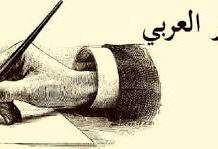Note on Slang
Note on Slang
Note on Slang
Note on Slang: The vulgar use of language in a new sense always with a particular meaning is called ‘Slang’. Slang belongs to any language of the world. In the English language, there is an abundant use of slang; but the systematic and scientific study of slang began in the nineteenth century. There are some outstanding characteristics of slang which are going to be discussed below:
First of all, slang rises up as a language (not independent) in the mouth of the vulgar masses. The vulgar masses invent some words at their will with a view to characterize something or to secure privacy to their speech and meaning within some particular class of people.
The second feature of slang is that it differs from place to place, region to region. The general masses of a particular place or society use some words which the general masses of another place do not know. But the slang used by a particular society consists of the nature and characteristics of the works and the mentality of the place.
The third characteristic of slang is that it always tries to say something worse or bad in a pleasing manner. For example, slang saying: Ram has passed away instead of plain saying: Ram has died.
The fourth characteristic of slang is that slang is fickle and changeable or short-lived. Slang rises up in a particular period of time and becomes popular, but soon it loses the title of slang while is it adopted by everybody as common a saying.
The fifth characteristic of slang is that it bears abundant synonymous words in meaning and sense. The most used words having the synonymous meaning are ‘money’, ‘drinking’, ‘drunkenness’ and ‘sexual organs’. We have twenty synonyms for the word ‘sea’; one hundred and thirty for the word ‘money’. It shows that slang is very resourceful in itself.
The sixth and most glorified characteristic of slang is that slang is not slang for a long time. They rise in contempt but find their way into the standard language of humour. The slang of one generation becomes standard and legitimate words for the next. For example- there are a lot of verbal phrases, idioms, and compound words which were originated as slang in the mouth of the vulgar, but nowadays they have become legitimate words. Some of such words and phrases are– higgledy-piggledy, by fair means or foul, by hook or by crook, sink or swim, etc.
Such many words and phrases have taken place in modern standard languages which have enriched the English vocabulary considerably. Hence it may be said that slang is not a curse but bliss in disguise from the viewpoint of linguistic phenomena.
From the viewpoint of the meaning of slang words, there have been met two kinds of slang: some are standard having good and real definite meanings and some are bad slang having no good or definite meaning at all. The standard slangs are those which are picturesque, witty and humorous. But it is to say that it is not the bad slang but the standard slang which is recognized as legitimate slang very soon and adopted by all. 0 0 0
Note on Slang
Read More: The History of -Ing’
N. B. This article entitled ‘Note on Slang’ originally belongs to the book ‘A Brief History of the English Language‘ by Menonim Menonimus. Note on Slang
Books on Linguistics by M. Menonimus:
- A Brief History of the English Language
- Essays on Linguistics
- My Imageries
- Felicitous Expression: Some Examples
- Learners’ English Dictionary
Related Searches:
- Slang
- List of Slang Word
- Haplology
- What is Malapropism
- Euphemism
- Archaism in Literature
- Discuss the Term Johnsonese
- Hybridism











